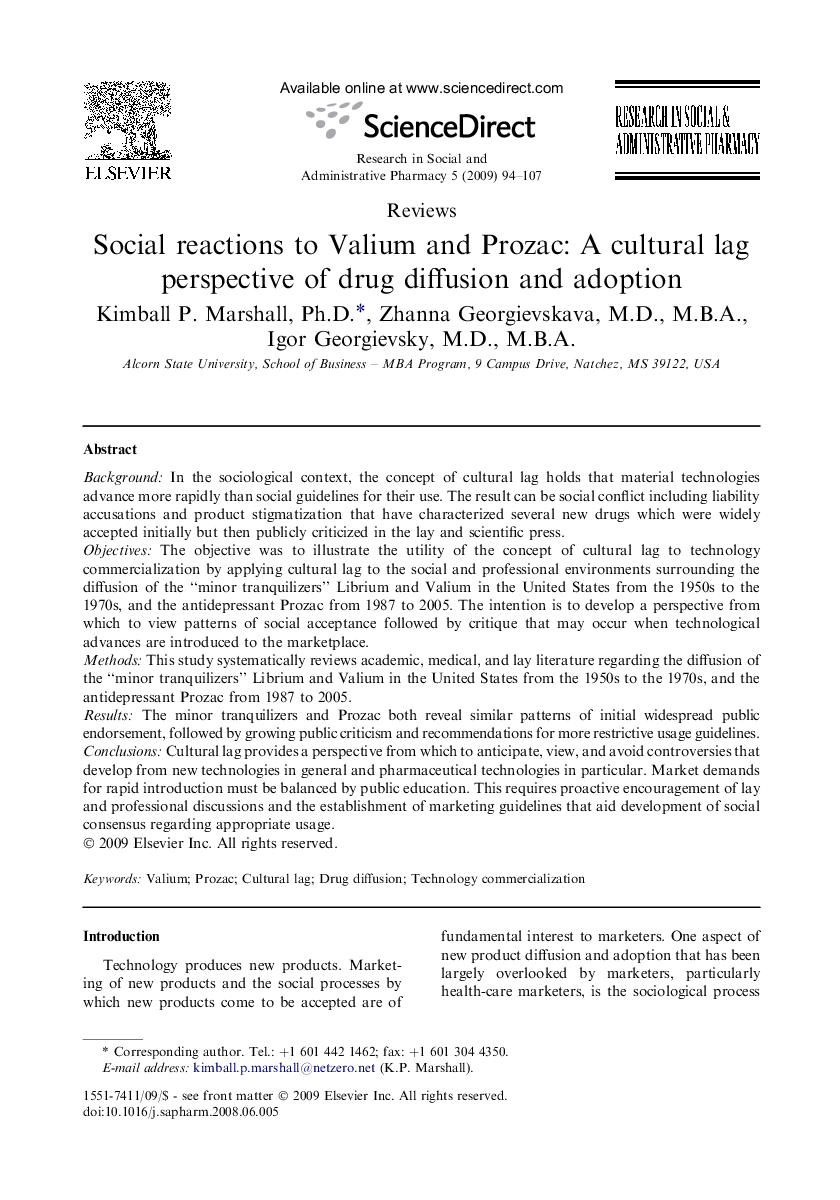| Article ID | Journal | Published Year | Pages | File Type |
|---|---|---|---|---|
| 2508730 | Research in Social and Administrative Pharmacy | 2009 | 14 Pages |
BackgroundIn the sociological context, the concept of cultural lag holds that material technologies advance more rapidly than social guidelines for their use. The result can be social conflict including liability accusations and product stigmatization that have characterized several new drugs which were widely accepted initially but then publicly criticized in the lay and scientific press.ObjectivesThe objective was to illustrate the utility of the concept of cultural lag to technology commercialization by applying cultural lag to the social and professional environments surrounding the diffusion of the “minor tranquilizers” Librium and Valium in the United States from the 1950s to the 1970s, and the antidepressant Prozac from 1987 to 2005. The intention is to develop a perspective from which to view patterns of social acceptance followed by critique that may occur when technological advances are introduced to the marketplace.MethodsThis study systematically reviews academic, medical, and lay literature regarding the diffusion of the “minor tranquilizers” Librium and Valium in the United States from the 1950s to the 1970s, and the antidepressant Prozac from 1987 to 2005.ResultsThe minor tranquilizers and Prozac both reveal similar patterns of initial widespread public endorsement, followed by growing public criticism and recommendations for more restrictive usage guidelines.ConclusionsCultural lag provides a perspective from which to anticipate, view, and avoid controversies that develop from new technologies in general and pharmaceutical technologies in particular. Market demands for rapid introduction must be balanced by public education. This requires proactive encouragement of lay and professional discussions and the establishment of marketing guidelines that aid development of social consensus regarding appropriate usage.
